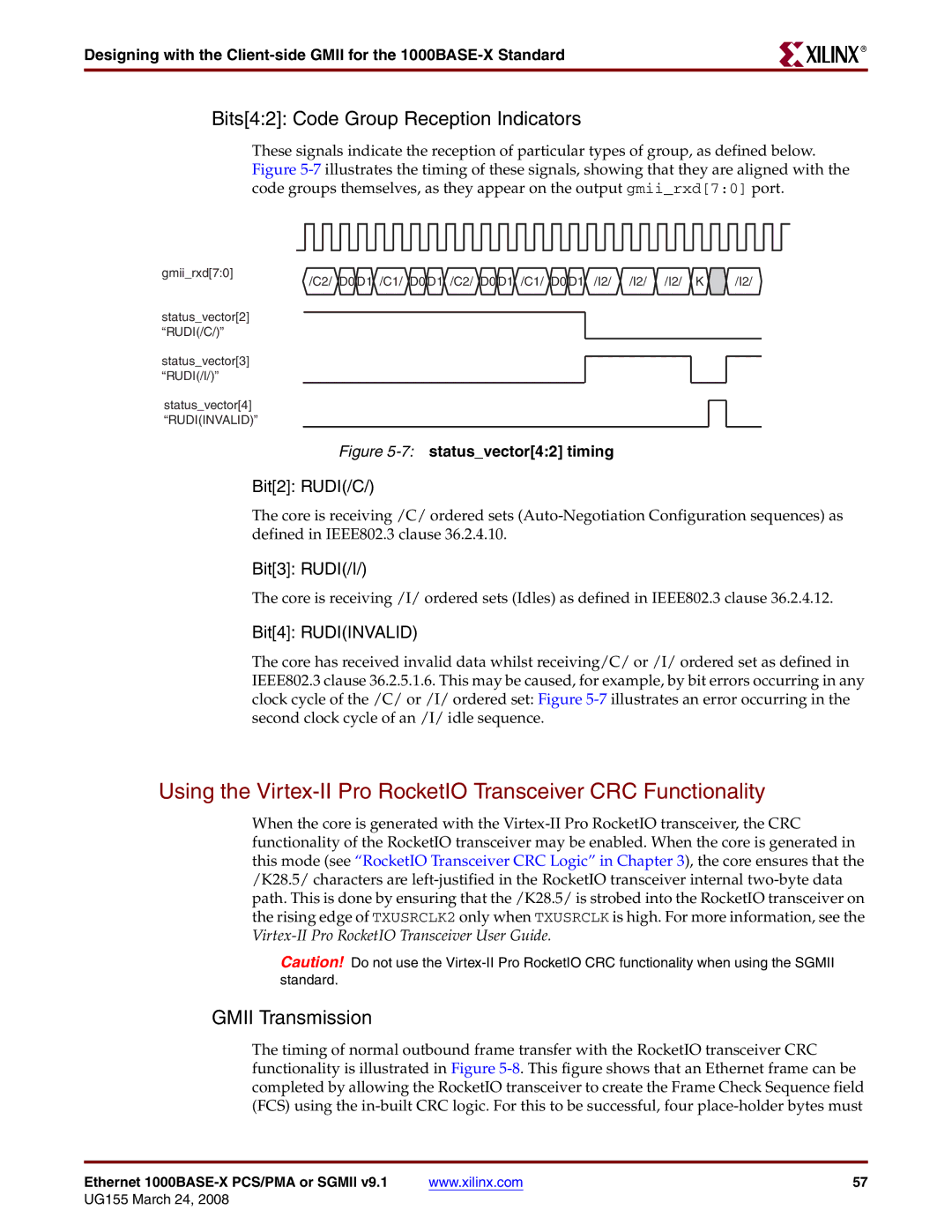
Designing with the
R
Bits[4:2]: Code Group Reception Indicators
These signals indicate the reception of particular types of group, as defined below. Figure
gmii_rxd[7:0] | /C2/ D0 D1 /C1/ D0 D1 /I2/ /I2/ /I2/ K | /I2/ |
/C2/ D0 D1 /C1/ D0 D1 |
status_vector[2] “RUDI(/C/)”
status_vector[3] “RUDI(/I/)”
status_vector[4] “RUDI(INVALID)”
Figure 5-7: status_vector[4:2] timing
Bit[2]: RUDI(/C/)
The core is receiving /C/ ordered sets
Bit[3]: RUDI(/I/)
The core is receiving /I/ ordered sets (Idles) as defined in IEEE802.3 clause 36.2.4.12.
Bit[4]: RUDI(INVALID)
The core has received invalid data whilst receiving/C/ or /I/ ordered set as defined in IEEE802.3 clause 36.2.5.1.6. This may be caused, for example, by bit errors occurring in any clock cycle of the /C/ or /I/ ordered set: Figure
Using the
When the core is generated with the
Caution! Do not use the
GMII Transmission
The timing of normal outbound frame transfer with the RocketIO transceiver CRC functionality is illustrated in Figure
Ethernet | www.xilinx.com | 57 |
